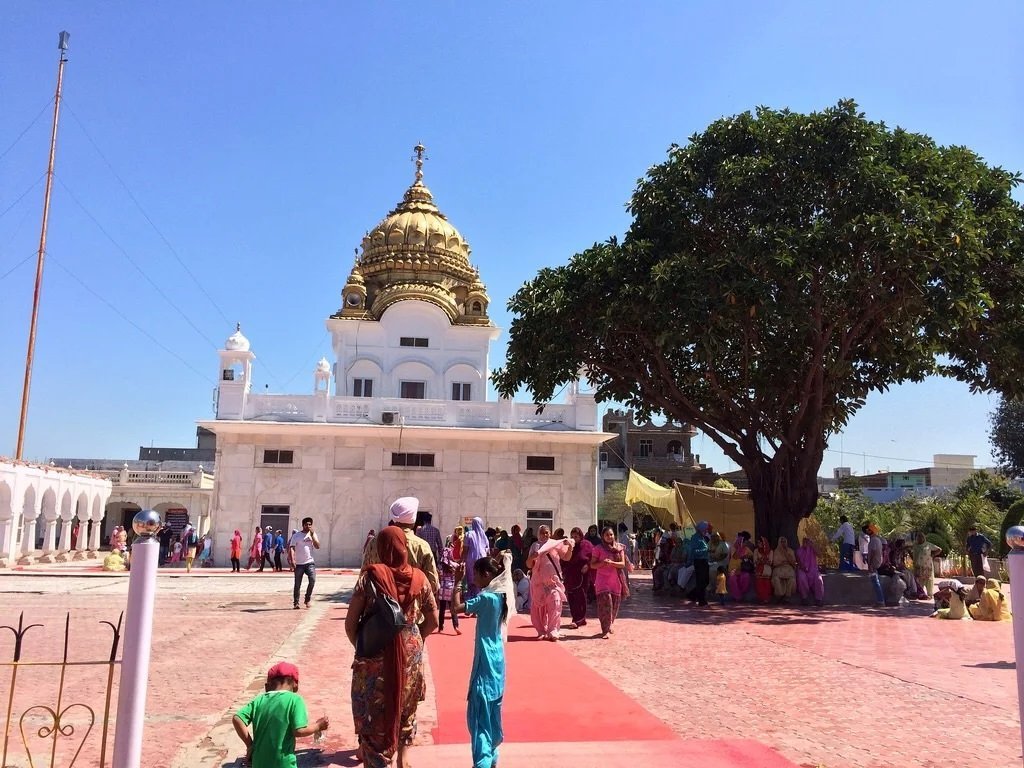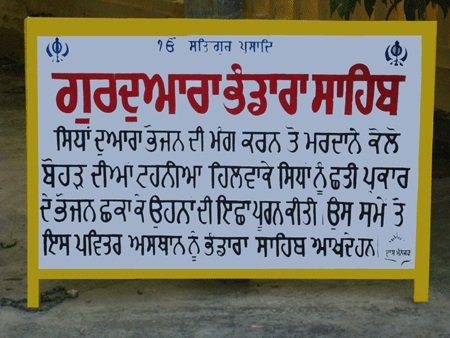Discover the sacred Kapal Mochan where Guru Gobind Singh stayed. Visit its serene shrine and join the vibrant annual fair in Kartik. Plan your pilgrimage today!
Explore Dera Baba Nanak—a sacred site by the Ravi River in Punjab, tied to Guru Nanak's legacy and home to historical gurdwaras and spiritual heritage.
NIDHAN SINGH, SANT (1882-1947), holy man popularly known as Hazur Sahibvale, was born the son of Bhai Uttam Singh of the village of Nidalori in Hoshiarpur district of the Punjab. He received religious instruction at the hands of Sant Divan Singh, popular in the area for his holiness. He left his home at the age of 20 and enlisted in the 5th Probyn`s Horse, a cavalry regiment of the Indian army, atJharisi. But he resigned within a year and set out on pilgrimage to Takhl Sachkhand Sri Hazur Sahib, Nanded, where he took up his permanent abode and found his calling in work in Guru ka Larigar.
Discover the essence of Pangat in Sikhism, where community unity is celebrated through shared meals, breaking barriers of caste and creed.
Explore Rani Majra's Gurdwara, a revered shrine linked to Guru Gobind Singh, offering history and heritage near Ambala city. Visit the sacred site today!
BAZIDPUR, village 7 km southeast of Firozpur Cantonment (31° 55`N, 74° 36`E) along the FirozpurLudhiana highway, is sacred to Guru Gobind Singh (1666-1708), who passed through here in 1706 after the battle of Muktsar. Gurdwara Gurusar, formerly known as Tittarsar after a legendary partridge (tittar, in Punjabi), marks the site where Guru Gobind Singh had encamped, and was first constructed in the form of a small Manji Sahib by Bishan Singh Ahluvalia, an official under Maharaja Ranjit Singh (1780-1839).
Explore the rich tradition of Bhandara in Sikh culture—feasts open to all, celebrating community and devotion, echoing the spirit of guru ka langar.
BHUP SINGH, SARDAR, remembered as Raja Bhup Singh in local lore, was the chief of the Sikh principality of Ropar, during the earlier half of the nineteenth century. Little is known about his life except that in 1808-09 he, along with Deva Singh, was in possession of Ropar and its adjacent districts including Khizrabad and Mianpur, a tract covering 115 villages with an estimated annual revenue of Rs 53,000. He was probably a grandson of Sardar Hari Singh of Dallevalia misi, who, according to Lepel.
- 1
- 2




